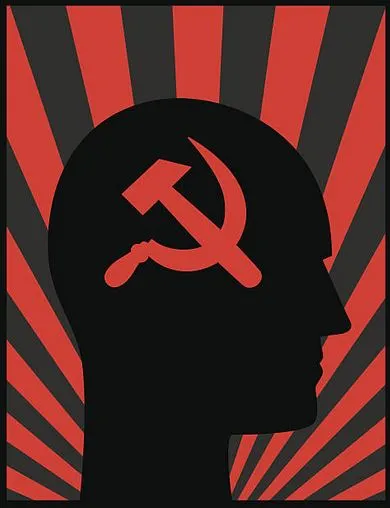The rise of neo-Marxism in Europe can be traced back to the 1960s and 1970s, when a new generation of leftist intellectuals began to re-examine the ideas of Karl Marx in light of the failures of traditional Marxism as it had been implemented in the Soviet Union and other communist countries.
One of the key figures in the development of neo-Marxism was the French philosopher Louis Althusser, who argued that traditional Marxism had failed to adequately account for the role of ideology in shaping people’s perceptions and actions. Althusser argued that individuals were not simply “economic beings” driven by class interests, but were also shaped by the dominant ideologies of their society.

Another important figure in the rise of neo-Marxism was the German sociologist Jürgen Habermas, who developed a theory of “communicative action” which emphasized the importance of dialogue and communication in shaping social change. Habermas argued that traditional Marxism had failed to account for the role of civil society and the public sphere in shaping politics and social change.
Neo-Marxism also heavily influenced by the student movement and feminist movement of the 1960s and 1970s, which brought attention to issues of race, gender, and sexuality that had been largely ignored by traditional Marxism. This led to the development of various “subaltern” and “critical” theories, which focused on the experiences and perspectives of marginalized groups such as women, people of color, and LGBTQ+ individuals.

In recent years, neo-Marxism has seen a resurgence of interest in Europe, particularly in the wake of the 2008 financial crisis and the rise of right-wing populism. Many leftist intellectuals and activists have argued that the crisis exposed the deep structural inequalities and contradictions of capitalism, and that a renewed focus on Marxist theory is needed to understand and address these problems.
One of the main reasons for the popularity of neo-Marxism in Europe is its ability to provide a critical analysis of capitalist societies and the social and economic inequalities they produce. Neo-Marxist theorists argue that capitalism creates a system of exploitation and oppression that benefits the ruling class at the expense of the working class. They also argue that the state and other institutions,
such as the media, play a crucial role in reproducing and maintaining this system of inequality.
Another reason for the popularity of neo-Marxism in Europe is its emphasis on the importance of cultural and ideological factors in shaping social relations. Neo-Marxist theorists argue that capitalist societies are not just characterized by economic exploitation, but also by cultural and ideological domination. They argue that capitalist societies create a dominant culture that justifies and legitimizes the existing social order, while suppressing alternative cultures and ideologies.
The popularity of neo-Marxism in Europe can also be attributed to the ongoing economic and political crises, which has led to a growing sense of disillusionment with the capitalist system. The 2008 financial crisis, followed by the Euro crisis and the rise of the far-right in many European countries, have further fueled this disillusionment and increased interest in alternative economic and political models.
However, it’s important to note that the term “neo-Marxism” is often used quite broadly and encompasses a wide range of different theories and perspectives. While all neo-Marxists share a commitment to the basic ideas of Karl Marx, there are significant differences in how they interpret and apply his ideas in practice. Thus, it’s hard to generalize the rise of neo-Marxism in Europe, as it’s diverse and complex.
Despite this, it’s clear that neo-Marxism has had a significant impact on European intellectual and political life, and continues to shape debates and movements on the left today. As the continent continues to grapple with the ongoing economic and political crises, it’s likely that the ideas of neo-Marxism will continue to play an important role in shaping the future of European politics and society.

























